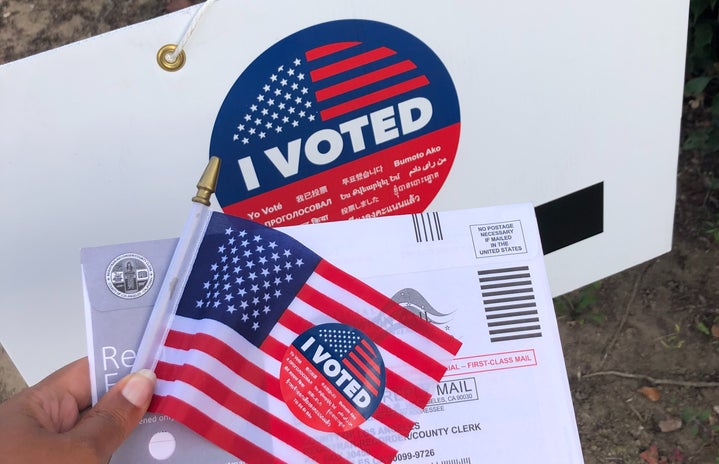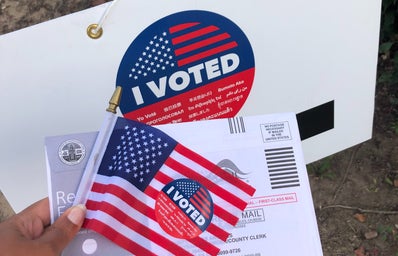Election chatter comes with lots of voting misconceptions. Let’s break down a few and see if they’re fact, or cap.
- “Only The Presidential Election Matters”
-
This is CAP! During the presidential election process, candidates compete state to state in primaries and caucuses to win the support of their party members. Voting in these elections is still very important! The winner of the primaries determines who has the popularity to stay in the race and become a final nominee. Once delegates announce the final presidential nominees, we vote again in November for our president. The candidate with the majority of electoral votes becomes the president, but none of this can happen if they don’t get the votes they need in the primaries!
- “We only vote for the president in November”
-
Cap, cap, cap. The November ballot is where you choose local and national leaders from sheriffs to judges. It also has referendums that allow you to vote on important legislation for your state. Depending on the state you could decide infrastructure budgets, how the election process works, and countless other issues.
- “My vote doesn’t count”
-
CAP- It does! Numerous elections came down to less than 0.1% of the total votes. In the 2000 presidential election, George W. Bush won Florida thanks to 537 votes. The state win was enough to propel him to the presidency. In 2006, Connecticut’s Congressional seat was won by Joe Courtney with 121,252 votes. In 2008 the US Senate race was decided by as few as 200 votes in Minnesota. Every single vote in these elections mattered. If each voter decided their vote didn’t count, history would not be made.
- “Swings states are a big deal”
-
Fact! A swing state or battleground state doesn’t have a trend of voting one way or the other. They can end up voting for majority Democratic or Republican candidates. Swing states could give either candidate a boost, making them a big factor in who wins the election. If you live in Florida or Georgia, you’re a part of “the Big Five” most likely to decide the Electoral College! This makes a vote for your preferred candidate even more effective.
- “All politicians are the same”
-
CAP! Ideologies and policies vary heavily between candidates. Sure, they all wear suits and start their speeches with “my fellow Americans”, but that’s where the similarities end. To better understand each candidate’s plans and values, check out their website and political track record. Watching candidate speeches and debates is helpful, but it’s important to focus on what candidates are doing, not saying. Try using your school’s library database to find non-biased information about a candidate’s history and what they’re doing for the country.
- “Voting is too complicated”
-
CAP! It doesn’t have to be! You can register to vote by mail, or at Vote.gov. To find out where you can cast your ballot and upcoming elections, look at your state’s official Department of Elections website. Want to know more about how your state and county’s elections are handled? Visit The National Conference of State Legislature website.


